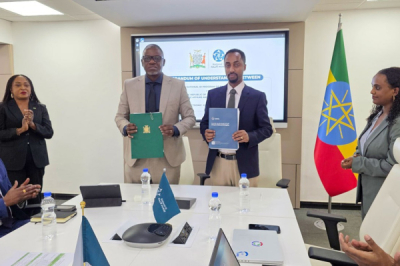-
Zambia and Ethiopia signed a cooperation deal to develop national digital ID systems.
-
Ethiopia shares experience from its Fayda program, with 25 million citizens already enrolled.
-
UNECA estimates digital ID could add 3–7% of GDP by cutting costs and boosting inclusion.
Zambia and Ethiopia signed a memorandum of understanding on October 2 to work together on developing national digital identity systems. The agreement, reached under the Permanent Joint Commission of Cooperation, aims to improve citizens’ access to essential services while strengthening transparency and public accountability.
The partnership will involve a transfer of expertise from Ethiopia to Zambia, particularly in biometric enrollment, open standards, and interoperable systems. Zambia expects to draw on Ethiopia’s experience to accelerate its identification infrastructure.
Ethiopia has moved ahead with its Fayda national digital ID program, launched in 2023, which seeks to provide secure digital identities to the entire population. More than 25 million people have already registered, with a target of 90 million by 2027.
In Zambia, progress is more recent but notable. In 2024, the country digitized 81% of its old paper identity cards within just three months. However, challenges remain, including a low birth registration rate of 14% in 2024, which limits overall coverage.
Beyond improving public services, the initiative is expected to support financial and social inclusion. According to the UN Economic Commission for Africa (UNECA), a well-designed digital ID system could generate value equivalent to 3–7% of GDP in African countries by reducing administrative costs and better integrating citizens into the formal economy.
For both Zambia and Ethiopia, the project is seen as a driver of development and aligns with the African Union’s Agenda 2063, which promotes local digital solutions to foster regional integration and sustainable growth. By adopting interoperable digital identities, the two countries are laying the groundwork for inclusive ecosystems that can stimulate economic activity and strengthen trust between citizens and institutions.
If fully implemented, the initiative could place Zambia and Ethiopia at the forefront of Africa’s digital transformation. Still, challenges remain, including ensuring data protection, achieving cross-platform interoperability, preventing the exclusion of rural and low-connectivity populations, and securing sustainable financing for large-scale deployment and maintenance.



















